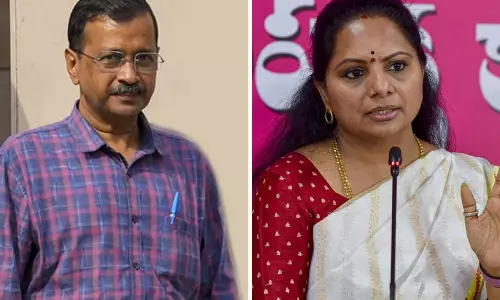
15 years on, Chattisinghpoora and Pathribal families await justice
text_fieldsSrinagar: Two elderly women, Jeet Kaur and Mirjani, bound by pain, tragedy and a delay in justice, are seeking closure of the infamous Chattisinghpoora massacre and Pathribal encounter cases for the last 15 years.
The two incidents refer to closely-related incidents that took place in the Anantnag district of Jammu and Kashmir between March 20 and 25, 2000 leaving over 40 civilians dead.
Kaur is unable to forget that fateful night of March 20, when, she says, a group of armed men wearing Indian Army uniform entered her small village of Chattisinghpoora in Anantnag district. They ordered 36 men of different families to assemble near the local gurdwara. Soon after, she recalls, they opened fire at the villagers, resulting in the death of 35. Only one was left alive, injured.
Jeet Kaur lost five of her family members in the massacre. The whole episode is still fresh in her mind, which led to her depression.
"I don’t want anything now, it’s been 15 years now. For god's sake, tell us who killed them, I want to see who shattered my dreams, before I die,” Jeet Kaur told IANS.
The Sikh community in the state has been demanding justice over the loss of its 35 members.
The state government ordered a police enquiry but nothing has been heard of it ever since.
Nanak Singh, the lone survivor, says that a couple of days after that massacre the army was involved in an encounter in the nearby village of Pathribal, later claiming they had killed the five militants who wore Indian Army uniforms to carry out the Chattisinghpoora massacre.
But, says Singh, those militants later turned out to be local residents after DNA tests were carried out on court intervention.
Singh holds the state and central governments responsible for their plight. "I have requested Prime Minister Narendra Modi to personally look into the matter and have also sent a memorandum to state Chief Minister Mufti Mohammad Sayeed. I hope their coalition government would bring some closure to the forgotten case," Singh told IANS.
Singh was summoned to Delhi's Tis Hazari court in 2010 to identify some unknown people, whom he couldn't. "Since then, I never heard of any trial or any development in the case," he said.
In March 2012, the Central Bureau of Investigation told the Supreme Court that the Pathribal encounter was a "cold-blooded murder". The army was ordered to carry out an enquiry. In January 2014, the army closed the case saying no prima facie evidence came out of the investigation against five accused army men.
The tale of the Pathribal encounter is not too different from that of the Chattisinghpoora victims. After 15 years, the perpetrators of the staged encounter are yet to be brought to justice.
“Since that incident, our life has gone through hell. We begged for our daily meals, we can’t afford to send our children to school because we don’t have any bread-earner at home,” said Mirzani, wife of Jumma Khan, who was killed in the fake encounter in Pathribal.
“We don’t know how long we have to wait for justice. We demand an open trial now and request the Indian army to complete the trial and punish the guilty men as early as possible,” said Rashid Khan who is a son of another person named Jumma Khan who was killed in Pathribal.
“We are keeping our hopes high as we will fight till we get justice,” Khan said. “I was threatened so many times in these years to withdraw the case but I never backed down and will keep on fighting till those army men are hanged.”
The Chattisinghpoora and Pathribal incidents represent a very sordid phase in Kashmir's peak militancy era in which the fates of Jeet Kaur and Mirzani got intertwined. For them, the wait for justice is unending.























